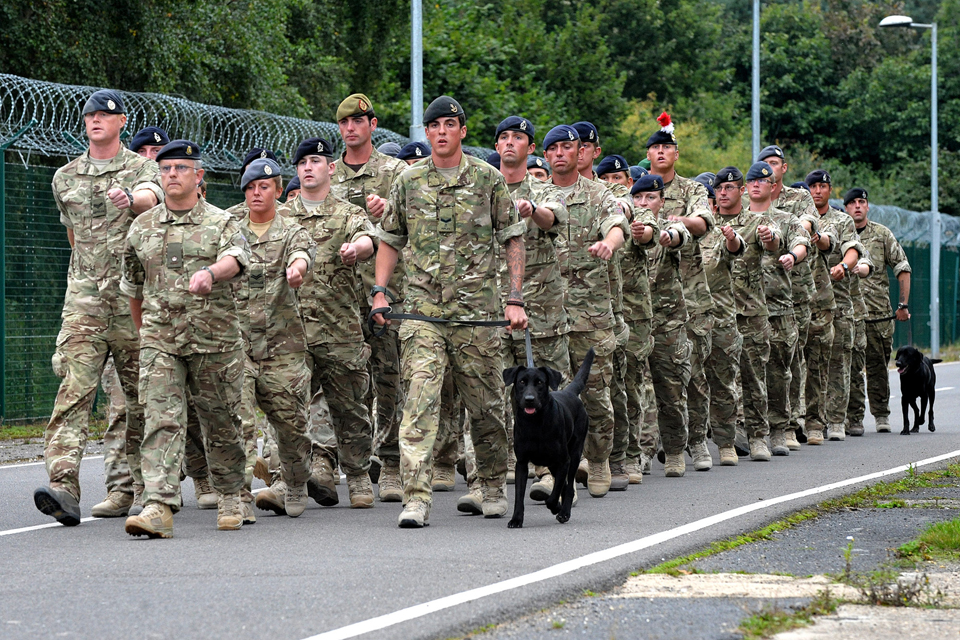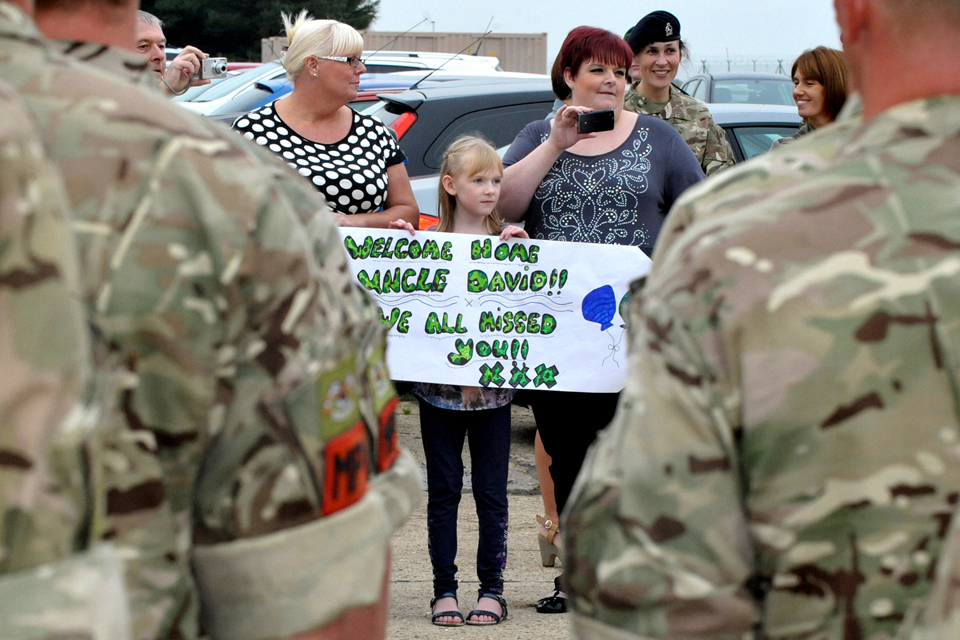Working dog unit returns from Afghanistan
Welcome home banners and celebrations greeted some 50 soldiers from 104 Military Working Dog Unit when they returned home from Afghanistan.
![Soldiers and dogs of 104 Military Working Dog Unit at North Luffenham [Picture: Corporal Gabriel Moreno, Crown copyright]](https://assets.publishing.service.gov.uk/media/5a614189ed915d7dfea6e4c8/s300_49X-2013-065_026.jpg)
Soldiers and dogs of 104 Military Working Dog Unit at North Luffenham
These highly trained dogs and their handlers carried out a range of tasks in theatre that included patrolling the bases where fellow British soldiers are based, searching vehicles at checkpoints and going out on patrol on the front line.
The soldiers of 104 Military Working Dog Unit, part of the 1st Military Working Dog Regiment, returned to St George’s Barracks in North Luffenham where they were met by their families after completing a 7-month tour of Afghanistan. 98 soldiers deployed from the unit in total; 48 soldiers returned home last month.

Soldiers and dogs of 104 Military Working Dog Unit arrive back at North Luffenham [Picture: Corporal Gabriel Moreno, Crown copyright]
Amongst those returning was Corporal Tamara King, aged 31, who said:
My role was a ‘trainer-maintainer’. When the dogs came back into camp I worked with them to keep their search skills sharp. The dogs take a bit of time to adapt to the different conditions in Afghanistan.
The dogs found some significant caches of arms and explosives and it’s great to know that I’ve helped train the dogs that made Helmand a safer place.
Lance Corporal Alex Day, aged 27 from Stoke-on-Trent, was met by his mum Elaine, sister Cassie, wife Susan and 14-week-old daughter Ashleigh. This was his second tour of Afghanistan as a protection dog handler at Camp Bastion:
I’ve had 2 very different tours. I was out on the ground with the infantry the first time and this tour I was patrolling Bastion and working at the entrance points. This time was quieter because the Afghans are taking the lead and we’re there in support.
It’s great to be back to see my new daughter. The unit timed my R&R (rest and recuperation) so I could be back for her birth and it was hard to fly back to Afghanistan. She’s grown so much and I’m looking forward to spending time with her on leave.

Family members and friends welcome members of 104 Military Working Dog Unit home to their base at North Luffenham [Picture: Corporal Gabriel Moreno, Crown copyright]
Officer Commanding 104 Military Work Dog Unit, Major Ian Razzell, said:
It’s easy to say that in 30 years in the Army this is the best team I’ve worked with, but in this case it’s easy to say because it is true.
He continued:
Our role in Afghanistan is to contribute to the protection of bases with our dogs and to search for things that can cause harm. The explosives and weapons that our dogs found have made Helmand a safer place for our troops and the Afghan people.